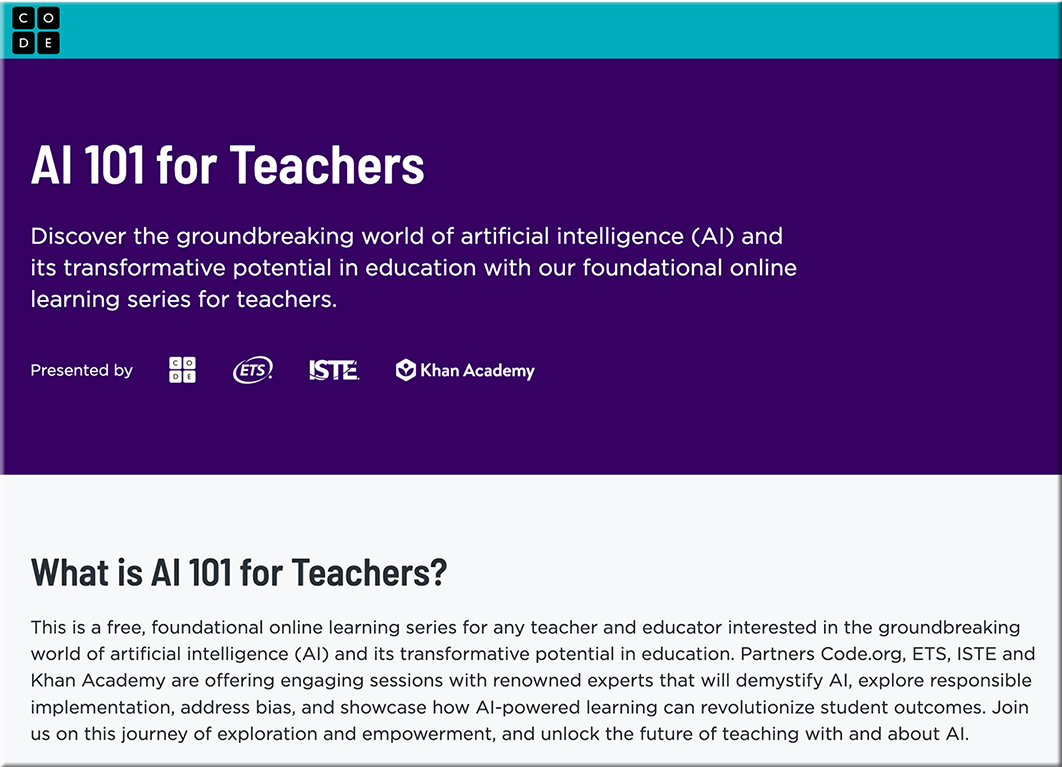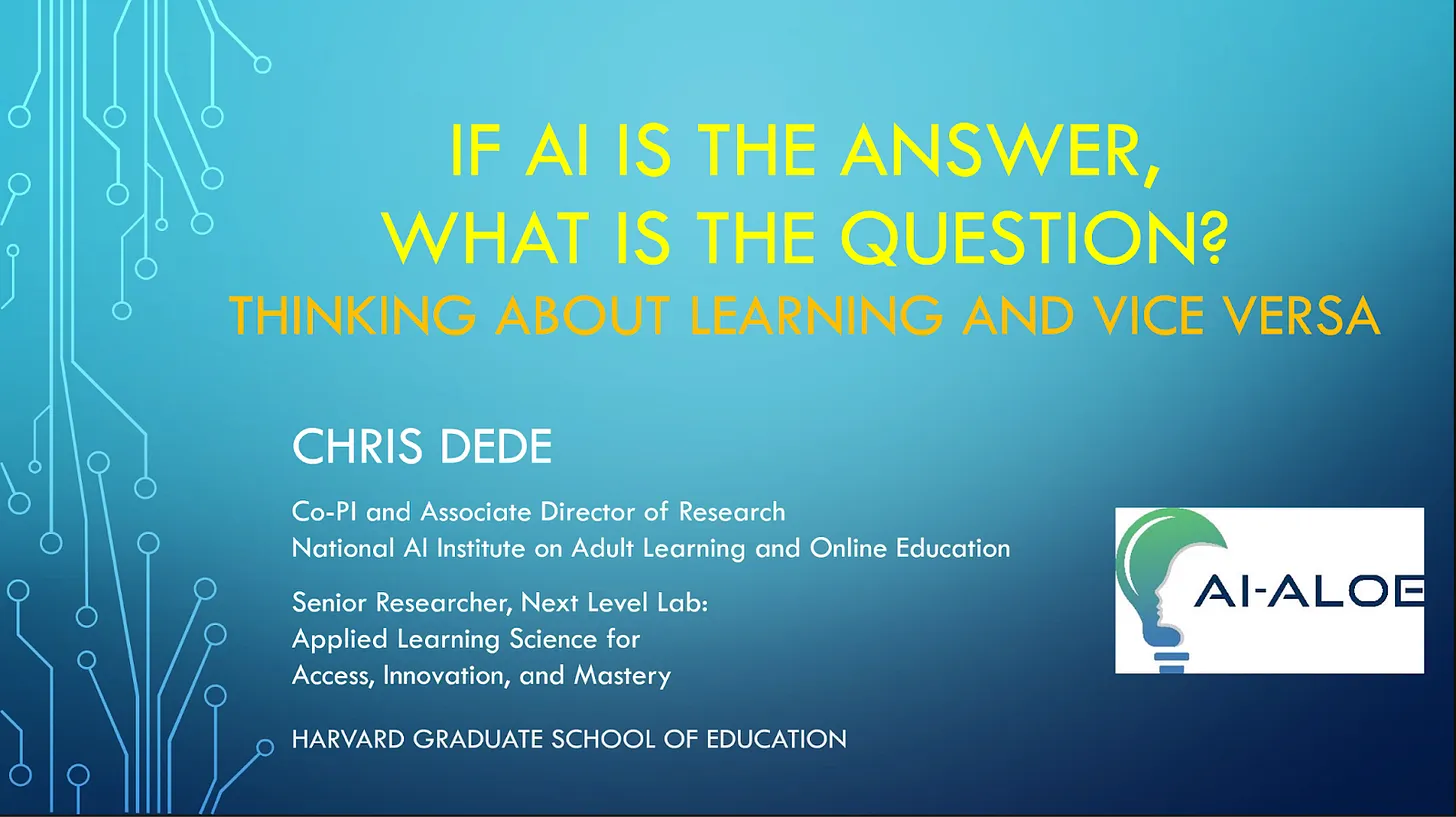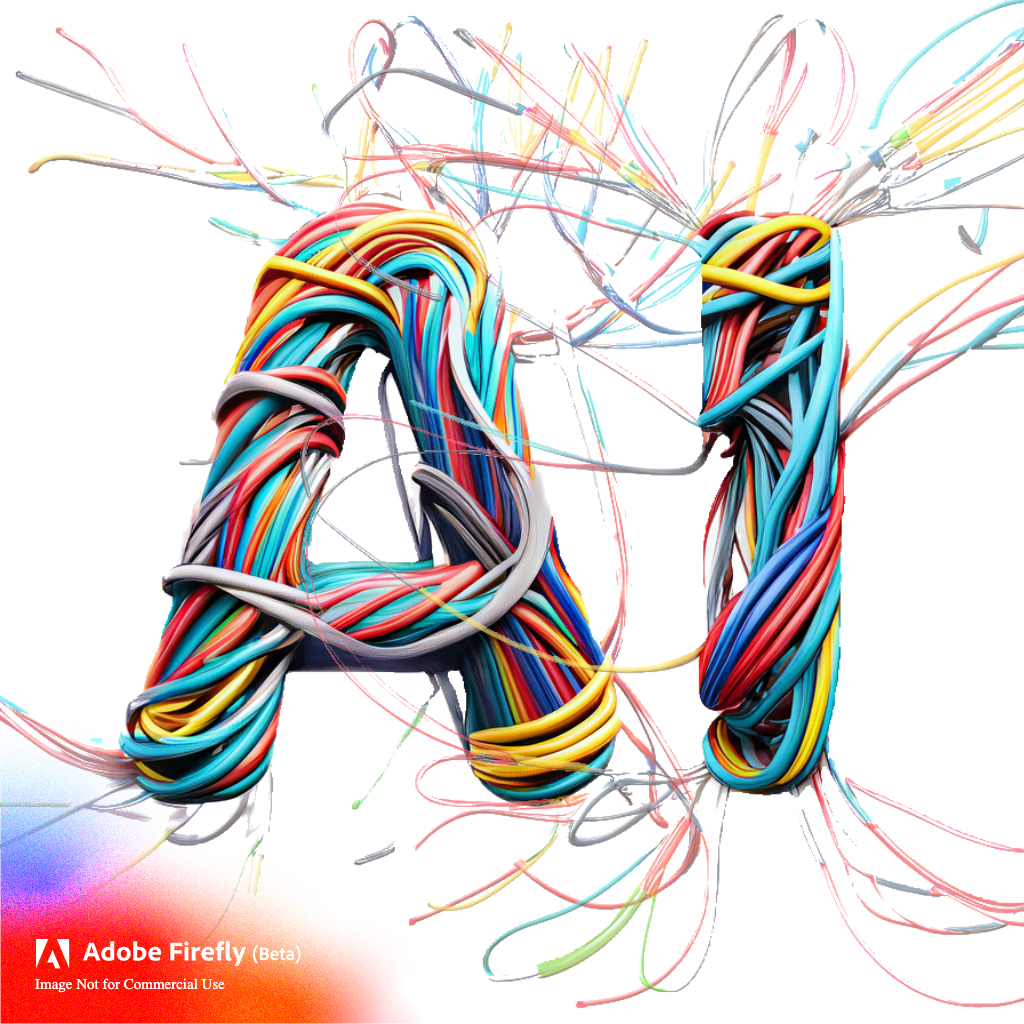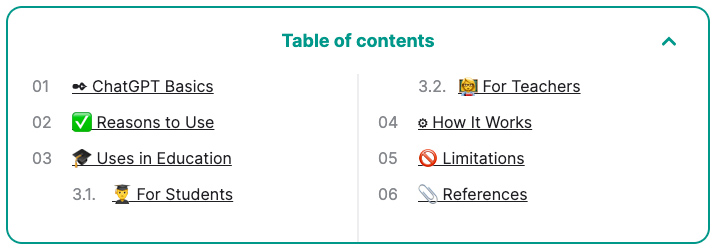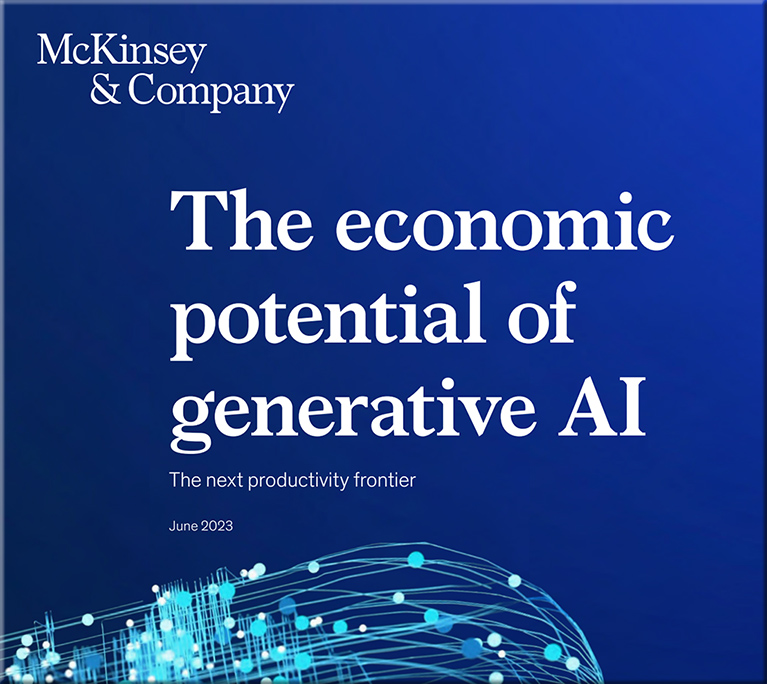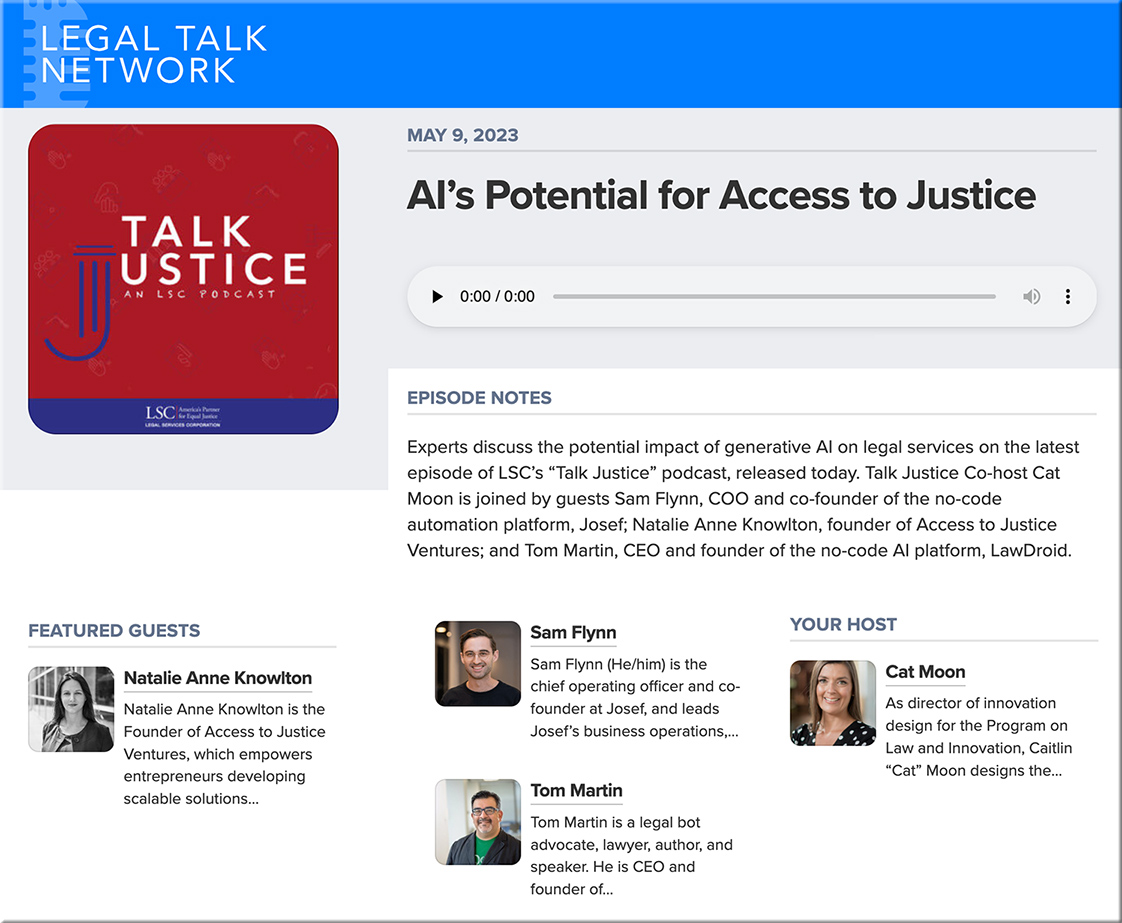From DSC:
Time will tell.
Per Jeff Maggioncalda, Coursera CEO: “This system-wide industry micro-credential program sets an innovative blueprint for the future of higher education.”
***
University Of Texas, Coursera Launch Historic Micro-credential Partnership — from forbes.com by Michael T. Nietzel
The University of Texas and Coursera, the online learning platform and a pioneer of Massive Open Online Courses (MOOCS), are launching a large-scale, industry-recognized micro-credential program. The collaboration was announced today in a blogpost by Coursera.
Through the new partnership, every student, faculty, and staff (and even alumni) across all nine universities in the University of Texas (UT) System will gain access to Courser’s Career Academy for no additional cost to them.
2023 Workplace Learning Report: Building the agile future — from learning.linkedin.com
L&D puts people and skills at the center of organizational success
Excerpt:
This moment requires agility — and L&D can lead the way.
For individuals, agility fuels career growth and relevance. For organizations, agility equals the ability to survive and thrive even amid economic headwinds.
And what is agility if not constant learning? To build a resilient and adaptable future, learning leaders are working across HR to ensure everyone has the tools, the career paths, and the skills to succeed.
Read on for insights and ideas to power your own path.
The economic potential of generative AI — from mckinsey.com; via Superhuman
.
DC: It should prove to be interesting & fun to watch how #AI and #XR related technologies will be integrated into games & the #gamification of #learning .https://t.co/HO2CftqNrs via @VRScout
— Daniel Christian (he/him/his) (@dchristian5) June 23, 2023
.
On giving AI eyes and ears — from oneusefulthing.org by Ethan Mollick
AI can listen and see, with bigger implications than we might realize.
Excerpt:
But even this is just the beginning, and new modes of using AI are appearing, which further increases their capabilities. I want to show you some examples of this emerging world, which I think will soon introduce a new wave of AI use cases, and accompanying disruption.
We need to recognize that these capabilities will continue to grow, and AI will be able to play a more active role in the real world by observing and listening. The implications are likely to be profound, and we should start thinking through both the huge benefits and major concerns today.
Ethan Mollick
5 Steps to Transforming Images into Videos Using AI Tools — from heatherbcooper.substack.com by Heather Cooper
A simple guide to layering AI tools for quick video creation
.
‘Nobody wins in an academic-integrity arms race’ — from chonicle.com by Ian Wilhelm
How artificial intelligence is changing the way college thing about cheating
Even though generative AI is a new thing, it doesn’t change why students cheat. They’ve always cheated for the same reason: They don’t find the work meaningful, and they don’t think they can achieve it to their satisfaction. So we need to design assessments that students find meaning in.
Tricia Bertram Gallant
Caught off guard by AI — from chonicle.com by Beth McMurtrie and Beckie Supiano
Professor scrambled to react to ChatGPT this spring — and started planning for the fall
Excerpt:
Is it cheating to use AI to brainstorm, or should that distinction be reserved for writing that you pretend is yours? Should AI be banned from the classroom, or is that irresponsible, given how quickly it is seeping into everyday life? Should a student caught cheating with AI be punished because they passed work off as their own, or given a second chance, especially if different professors have different rules and students aren’t always sure what use is appropriate?
GPT-4 Can Use Tools Now—That’s a Big Deal — from every.to by Dan Shipper; resource via Sam DeBrule
What “function calling” is, how it works, and what it means
Excerpt:
…OpenAI built tool use right into the GPT API with an update called function calling. It’s a little like a child’s ability to ask their parents to help them with a task that they know they can’t do on their own. Except in this case, instead of parents, GPT can call out to external code, databases, or other APIs when it needs to.
Each function in function calling represents a tool that a GPT model can use when necessary, and GPT gets to decide which ones it wants to use and when. This instantly upgrades GPT capabilities—not because it can now do every task perfectly—but because it now knows how to ask for what it wants and get it.
.
.
How ChatGPT can help disrupt assessment overload — from timeshighereducation.com by David Carless
Advances in AI are not necessarily the enemy – in fact, they should prompt long overdue consideration of assessment types and frequency, says David Carless
Excerpt:
Reducing the assessment burden could support trust in students as individuals wanting to produce worthwhile, original work. Indeed, students can be co-opted as partners in designing their own assessment tasks, so they can produce something meaningful to them.
A strategic reduction in quantity of assessment would also facilitate a refocusing of assessment priorities on deep understanding more than just performance and carries potential to enhance feedback processes.
If we were to tackle assessment overload in these ways, it opens up various possibilities. Most significantly there is potential to revitalise feedback so that it becomes a core part of a learning cycle rather than an adjunct at its end. End-of-semester, product-oriented feedback, which comes after grades have already been awarded, fails to encourage the iterative loops and spirals typical of productive learning.
.
.
The full 12 uses are here: https://edgeoflearning.com/your-new-teaching-superpower-ai-tools/
The AI Tools in Education Database — from kiwi-path-612.notion.site by EdTech Insiders
Excerpt (emphasis DSC):
Since AI in education has been moving at the speed of light, we built this AI Tools in Education database to keep track of the most recent AI tools in education and the changes that are happening every day. This database is intended to be a community resource for educators, researchers, students, and other edtech specialists looking to stay up to date. This is a living document, so be sure to come back for regular updates.
.
.
Time for Class 2023 Study finds students are earlier adopters of generative AI tools than faculty, and majority (69%) of learners prefer hybrid, blended or online course formats — from globenewswire.com by Tyton Partners
.
AI Could Prevent Hiring Bias — Unless It Makes It Worse — from nerdwallet.com by Anna Helhoski
Advocates say AI can eliminate human biases in hiring. Skeptics point out that AI tools are trained by … humans.
Excerpt:
These claims conjure up the rosiest of images: human resource departments and their robot buddies solving discrimination in workplace hiring. It seems plausible, in theory, that AI could root out unconscious bias, but a growing body of research shows the opposite may be more likely.
…
Companies’ use of AI didn’t come out of nowhere: For example, automated applicant tracking systems have been used in hiring for decades. That means if you’ve applied for a job, your resume and cover letter were likely scanned by an automated system. You probably heard from a chatbot at some point in the process. Your interview might have been automatically scheduled and later even assessed by AI.
From DSC:
Here was my reflection on this:
DC: Along these lines, I wonder if Applicant Tracking Systems cause us to become like typecast actors and actresses — only thought of for certain roles. Pigeonholed.
— Daniel Christian (he/him/his) (@dchristian5) June 23, 2023
Also related to AI in hiring, see:
4 in 10 Companies Will Be Using AI Interviews by 2024 — from resumebuilder.com
In June, ResumeBuilder.com surveyed more than 1,000 employees who are involved in hiring processes at their workplaces to find out about their companies’ use of AI interviews.
The results:
- 43% of companies already have or plan to adopt AI interviews by 2024
- Two-thirds of this group believe AI interviews will increase hiring efficiency
- 15% say that AI will be used to make decisions on candidates without any human input
- More than half believe AI will eventually replace human hiring managers
Watch OpenAI CEO Sam Altman on the Future of AI — from bloomberg.com
Sam Altman, CEO & Co-Founder, OpenAI discusses the explosive rise of OpenAI and its products and what an AI-laced future can look like with Bloomberg’s Emily Chang at the Bloomberg Technology Summit.
.
PowerSchool Announces Collaboration with Microsoft Azure OpenAI Service to Provide Personalized Learning at Scale in K-12 Education — from powerschool.com
Large-scale language models integrated within PowerSchool Performance Matters and PowerSchool LearningNav products will empower educators in delivering transformative personalized learning pathways
The implementation of generative AI within these products will dramatically improve educators’ ability to deliver personalized learning to students at scale by enabling the application of personalized assessments and learning pathways based on individual student needs and learning goals. K-12 educators will also benefit from access to OpenAI technology…
.
FETC 2023 Virtual Roundtable: How AI Will Transform K-12 Education
AI could be the great equalizer!
Holly Clark
Example screenshots:
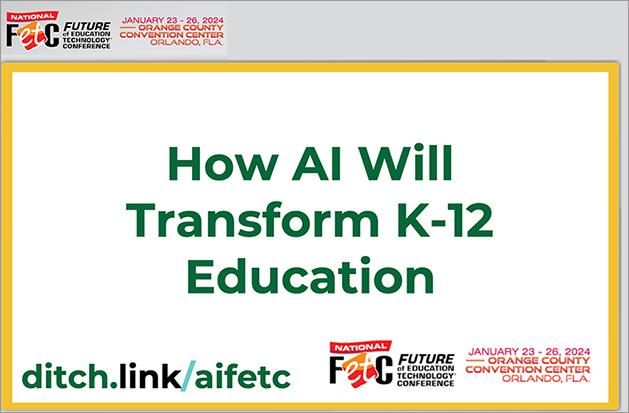
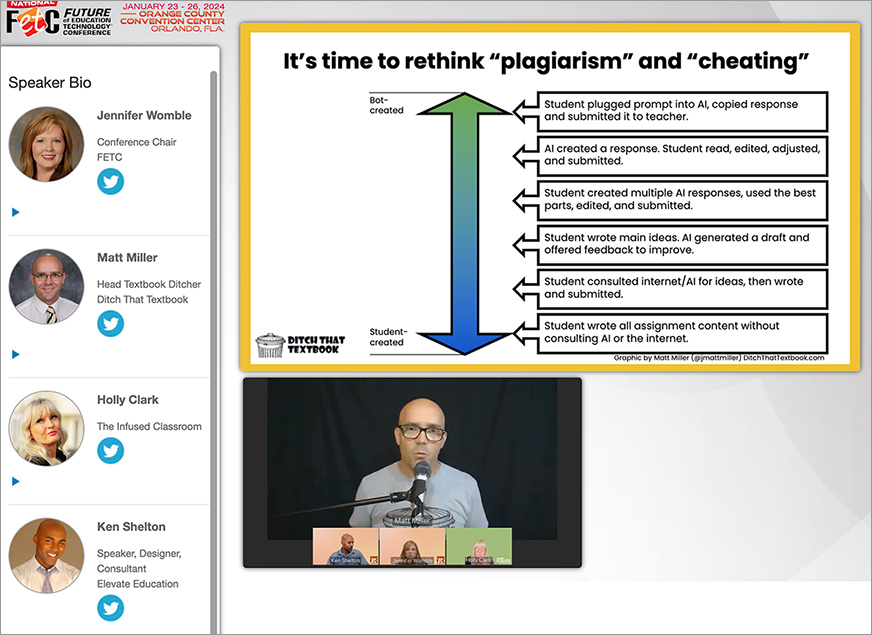
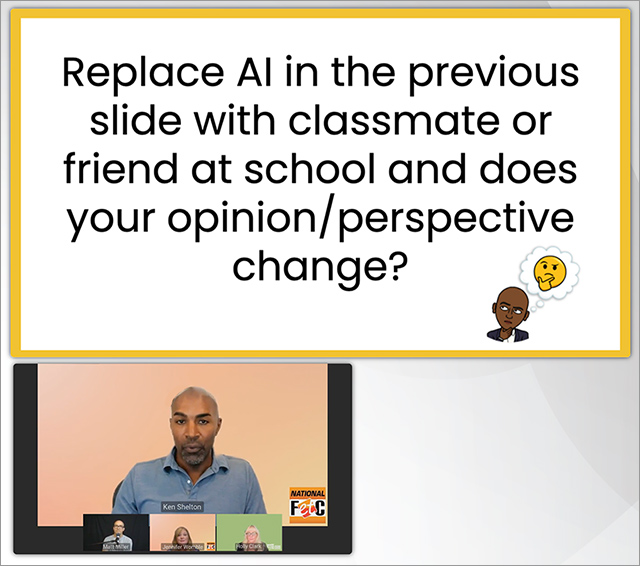
AI-driven Legal Apprenticeships — from thebrainyacts.beehiiv.com by Josh Kubicki
Excerpts:
My hypothesis and research suggest that as bar associations and the ABA begin to recognize the on-going systemic issues of high-cost legal education, growing legal deserts (where no lawyer serves a given population), on-going and pervasive access to justice issues, and a public that is already weary of the legal system – alternative options that are already in play might become more supported.
What might that look like?
The combination of AI-assisted education with traditional legal apprenticeships has the potential to create a rich, flexible, and engaging learning environment. Here are three scenarios that might illustrate what such a combination could look like:
-
- Scenario One – Personalized Curriculum Development
- Scenario Two – On-Demand Tutoring and Mentoring
- Scenario Three – AI-assisted Peer Networks and Collaborative Learning:
Why Companies Are Vastly Underprepared For The Risks Posed By AI — from forbes.com by
Accuracy, bias, security, culture, and trust are some of the risks involved
Excerpt:
We know that there are challenges – a threat to human jobs, the potential implications for cyber security and data theft, or perhaps even an existential threat to humanity as a whole. But we certainly don’t yet have a full understanding of all of the implications. In fact, a World Economic Forum report recently stated that organizations “may currently underappreciate AI-related risks,” with just four percent of leaders considering the risk level to be “significant.”
A survey carried out by analysts Baker McKenzie concluded that many C-level leaders are over-confident in their assessments of organizational preparedness in relation to AI. In particular, it exposed concerns about the potential implications of biased data when used to make HR decisions.
AI & lawyer training: How law firms can embrace hybrid learning & development — thomsonreuters.com
A big part of law firms’ successful adaptation to the increased use of ChatGPT and other forms of generative AI, may depend upon how firmly they embrace online learning & development tools designed for hybrid work environments
Excerpt:
As law firms move forward in using of advanced artificial intelligence such as ChatGPT and other forms of generative AI, their success may hinge upon how they approach lawyer training and development and what tools they enlist for the process.
One of the tools that some law firms use to deliver a new, multi-modal learning environment is an online, video-based learning platform, Hotshot, that delivers more than 250 on-demand courses on corporate, litigation, and business skills.
Ian Nelson, co-founder of Hotshot, says he has seen a dramatic change in how law firms are approaching learning & development (L&D) in the decade or so that Hotshot has been active. He believes the biggest change is that 10 years ago, firms hadn’t yet embraced the need to focus on training and development.
From DSC:
Heads up law schools. Are you seeing/hearing this!?
- Are we moving more towards a lifelong learning model within law schools?
- If not, shouldn’t we be doing that?
- Are LLM programs expanding quickly enough? Is more needed?
Legal tech and innovation: 3 ways AI supports the evolution of legal ops — from lexology.com
Excerpts:
- Simplified legal spend analysis
- Faster contract review
- Streamlined document management
Why L&D should be at the forefront of the AI revolution — from managementtoday.co.uk by Bill Borrows
AI means that 50% of all employees will need reskilling or upskilling by 2025, according to the World Economic Forum.
Excerpt (emphasis DSC):
Ernst and Young dug a little deeper. “Today’s disruptive working landscape requires organisations to largely restructure the way they are doing work,” they noted in a bulletin in March this year. “Time now spent on tasks will be equally divided between people and machines. For these reasons, workforce roles will change and so do the skills needed to perform them.”
The World Economic Forum has pointed to this global skills gap and estimates that, while 85 million jobs will be displaced, 50% of all employees will need reskilling and/or upskilling by 2025. This, it almost goes without saying, will require Learning and Development departments to do the heavy-lifting in this initial transformational phase but also in an on-going capacity.
“And that’s the big problem,” says Hardman. “2025 is only two and half years away and the three pillars of L&D – knowledge transference, knowledge reinforcement and knowledge assessment – are crumbling. They have been unchanged for decades and are now, faced by revolutionary change, no longer fit for purpose.”
ChatGPT is the shakeup education needs — from eschoolnews.com by Joshua Sine
As technology evolves, industries must evolve alongside it, and education is no exception–especially when students heavily and regularly rely on edtech
Key points:
- Education must evolve along with technology–students will expect it
- Embracing new technologies helps education leverage adaptive technology that engage student interest
- See related article: AI tools are set to impact tutoring in a big way
My department asked me to give a brief talk about #GPT to them to help folks learn more about what’s going on. Here are my #tips in distilled form.
— Andrew Piper (@_akpiper) June 5, 2023
Welcome to the new surreal. How AI-generated video is changing film. — from technologyreview.com by Will Douglas Heaven
Exclusive: Watch the world premiere of the AI-generated short film The Frost.
.
BEST 40 AI artists you need to follow now?? pic.twitter.com/t7WiXORhE2
— Rushik (@hey_rushik) June 2, 2023
The Future Of Education – Disruption Caused By AI And ChatGPT: Artificial Intelligence Series 3 Of 5 — from forbes.com by Nicole Serena Silver
Here are some ways AI can be introduced at various age levels









